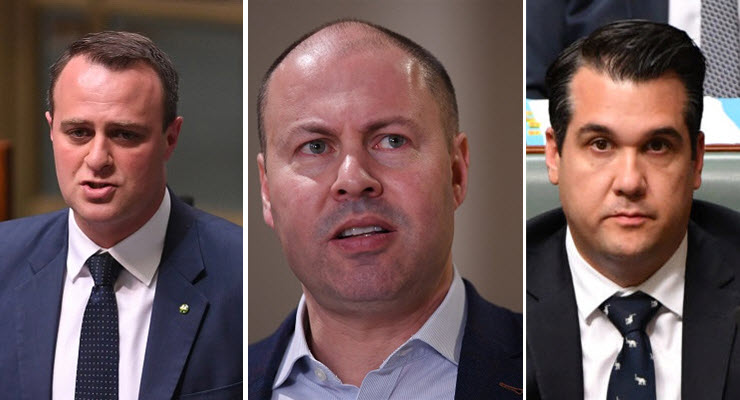
The car park rort program, part of the government’s Urban Congestion Fund, was focused on saving Victoria, particularly Melbourne, an area where the Liberals expected to struggle in the 2019 election. The Coalition was right to be concerned: Melbourne bucked the national swing to the Coalition.
Goldstein, an inner Melbourne seat held by Liberal Tim Wilson, was the biggest winner with six funded projects. While not marginal, Wilson suffered a 4% swing against him. Deakin, in the Melbourne suburbs, got five. While Assistant Treasurer Michael Sukkar hung on, it was so firmly in Labor’s sites Bill Shorten launched his campaign there.
Four projects were funded in Kooyong, the blue ribbon Liberal stronghold where Treasurer Josh Frydenberg was given a real scare by the Greens — driven by the party’s stance on climate change.
In New South Wales there were four projects in Banks, a close middle-Sydney marginal seat Labor was desperate to pick up — ultimately retained by the Liberals with a comfortable 4% swing. Three more went to Lindsay, a western Sydney seat the Liberals narrowly picked up from Labor.
The double-dippers
The Urban Congestion Fund (UCF) isn’t the only grant program the Coalition has slanted in favour of its own seats. And a glance down the list of favoured electorates in Melbourne shows many have been big winners in previous rounds of rorting, including the now infamous sport rorts.
In Kooyong, for example, the Hawthorn Malvern Hockey Club received a $500,000 grant, initially destined for Bob Katter’s seat in north Queensland, before an email from the prime minister’s office to Bridget McKenzie’s office redirected it. All up, Kooyong got $635,000 in the sports grants process.
Dunkley, in outer Melbourne, where Labor increased its thin margin from 1% to 2.7% in 2019, got three projects funded through the UCF grants. It was also a sports rorts winner, getting $1.4 million in funding. And more recently it’s been lucky again. Assistant Minister for Customs, Community Safety and Multicultural Affairs Jason Wood gave a $450,000 Safer Communities Fund grant to St Thomas Syro-Malabar Church in the seat, despite it not being recommended by the department.
Wood’s own seat of La Trobe, another Melbourne marginal, got three projects funded. It’s also home to the Pakenham Football Club, which got $500,000 from the sports grants program, the worst-performing applicant to receive funding. All up, it received $1.6 million in sports grants.
There are other double-dippers outside Melbourne. Mayo, held by the Centre Alliance and where sports rorts began, got $1.2 million from McKenzie’s rort, and a funded car park.
Meanwhile, the auditor-general is looking into the Community Safety Grants, where Peter Dutton allegedly funnelled money away from recommended projects towards marginal seats. Lindsay was another winner there.
Outside the largely urban-focused car park funding, other marginals have lucked out through a series of Coalition rorts. Indi, once a Liberal seat, now held on a narrow margin by Independent Helen Haines, got $4 million out of a regional infrastructure program that delivered 94% of funding to Coalition seats or marginals ahead of the election. Indi also received $1.4 million through the sports grants program.
The point is, with an election coming in the next year, expect plenty of generosity if you live in a marginal seat.








For a bloke who claims to be protecting our money from allegedly untrustworthy super funds,Tim Wilson seems awfully cavalier about spending our money on things he regards as priorities. Just a coincidence if he receives any collateral benefit, I guess.
And if you don’t live in a marginal seat, prepared to get shafted again.
Tim Wilson …. with his “all those diabolical industry superannuation funds” narrative? His “nest-egg” would be the “IPA-UCF Super Scheme”?
The point is, with an election coming in the next year, expect plenty of generosity if you live in a marginal seat.
An excellent reason to keep voting for an Independent.
And whoever you vote for, put Labor above the LNP on BOTH ballot papers!!
Whomsoever you vote for, government always wins.
If voting could change anything it would be illegal.
Definitely room for a lot more independents in both houses, but it could also be time to give the New Liberals a go. From what I have seen, they have some genuinely liberal views and some actual honest members – two things being rare in the current party of far right neo liberals calling themselves “liberal”.
There was never a bad rort, or even a good rort, while the LNP have been in government – just philanthropic projects for the benefit of electorate community organisations at risk – the LNP?